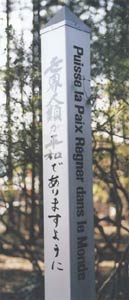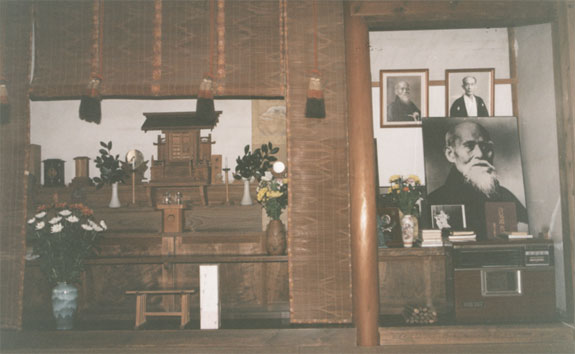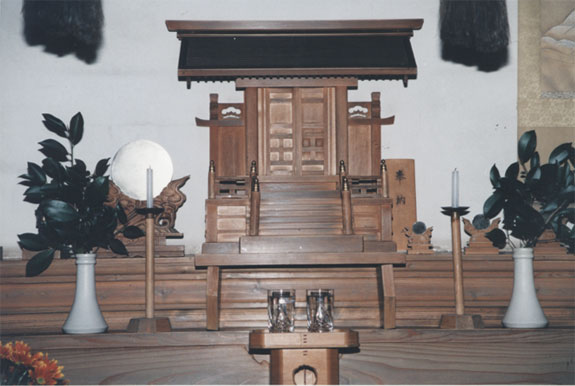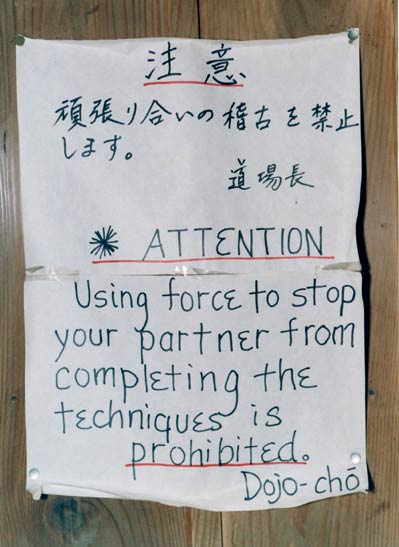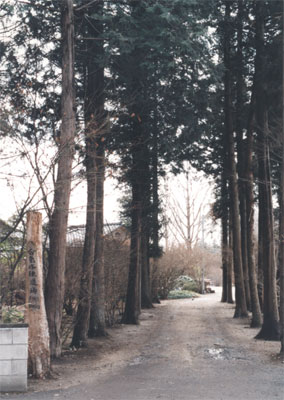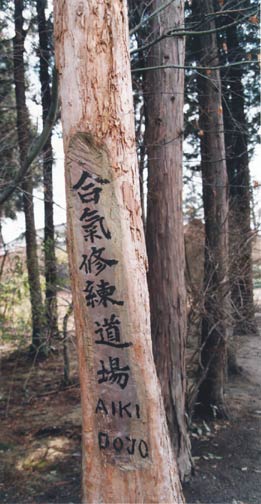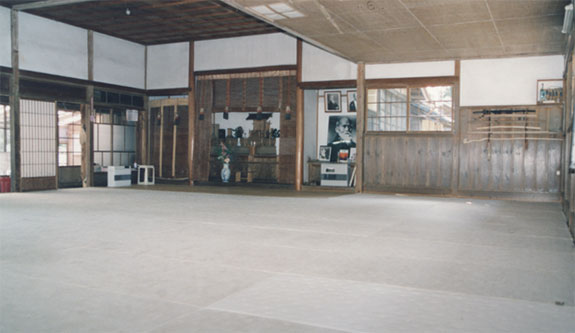
|
Iwama is a small village located at 100Km North East
of Tokyo, near the town of Mito, in the district
of Ibaragi.
In 1942, the Master Morihei
Ueshiba retired in this province
and settled in Iwama where he built a UBUYA (the place of birth),
which comprised of: the altar of Aïki and an outdoor
dojo.
Today's dojo was completed in 1945 before the end of WW II.
In this peaceful region, far from the tumult of the city and
the rage of the war which had affected him morally and physically,
Morihei Ueshiba improved his skill and perfected the art of the
sabre and the stick called, in aïkido, Aïki Ken et
Aïki Jo.
He believed it was fundamental to handle these arms well to execute
the techniques bare handedly. He then defines the concept of
TAKEMUSI AÏKI, which
corresponds to the quick and spontaneous execution of various
techniques adapted to an attack.
Takemusu Aïki Is the final step is the concept of Aïki
which keeps at its very heart a great variety of techniques and
modernity.
During this prolific period, O Sensei Morihei Ueshiba had
a very eager student who was to become one of his closest
disciples and later his technical successor at Iwama: Morihiro
SAITO, who is still in charge of the Dojo
and of l'Aïki
Jinja.
|

